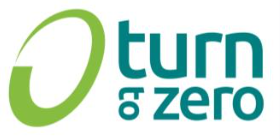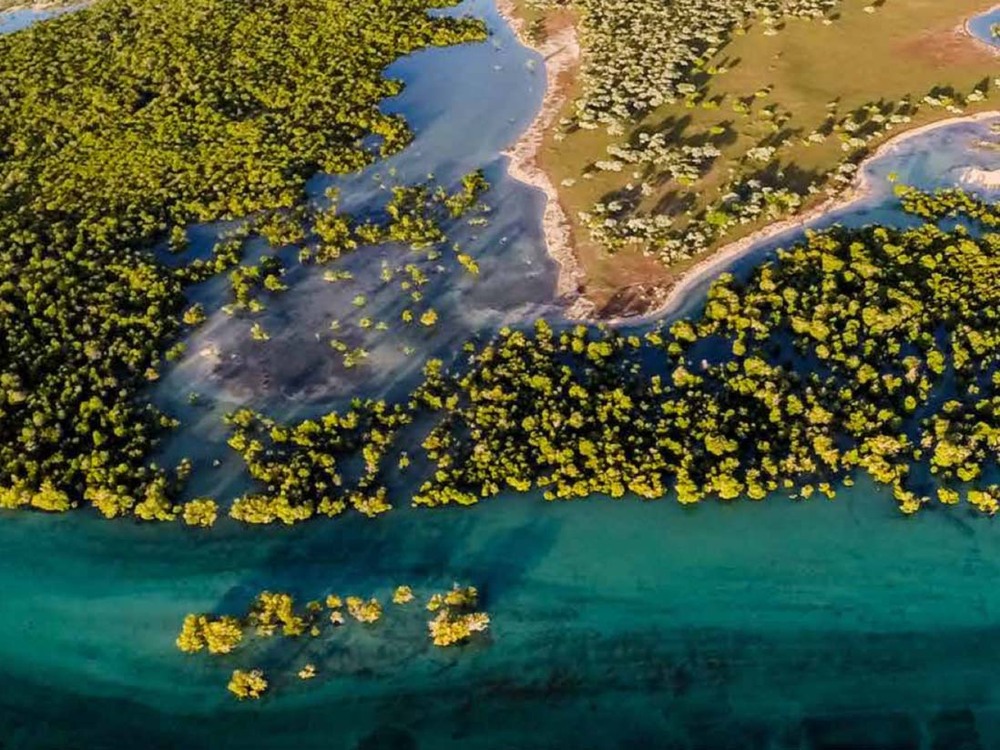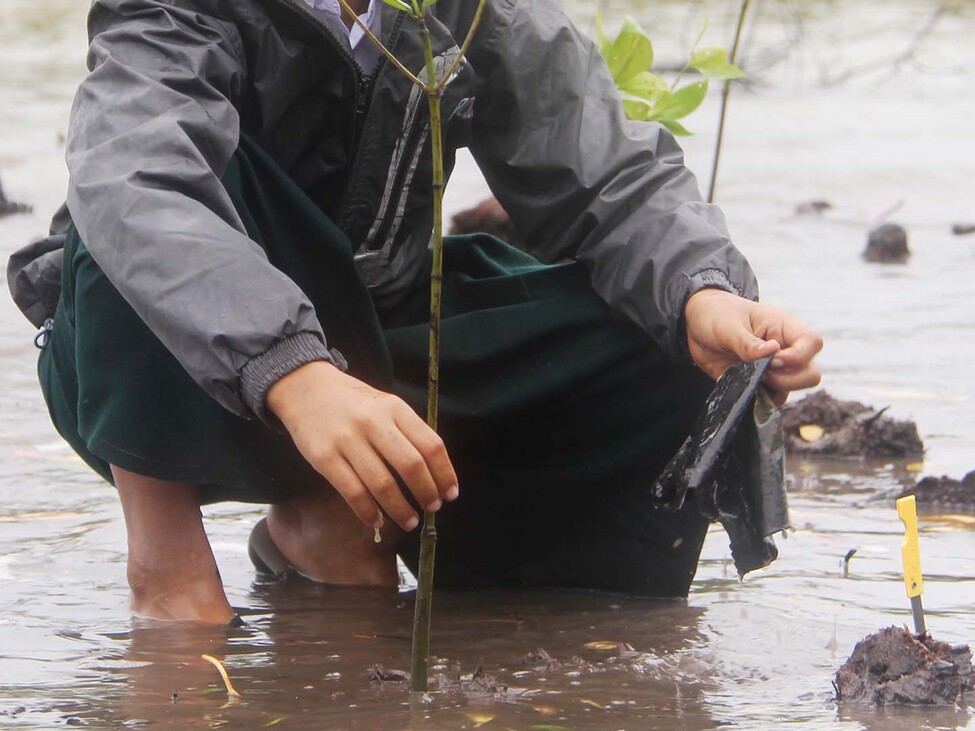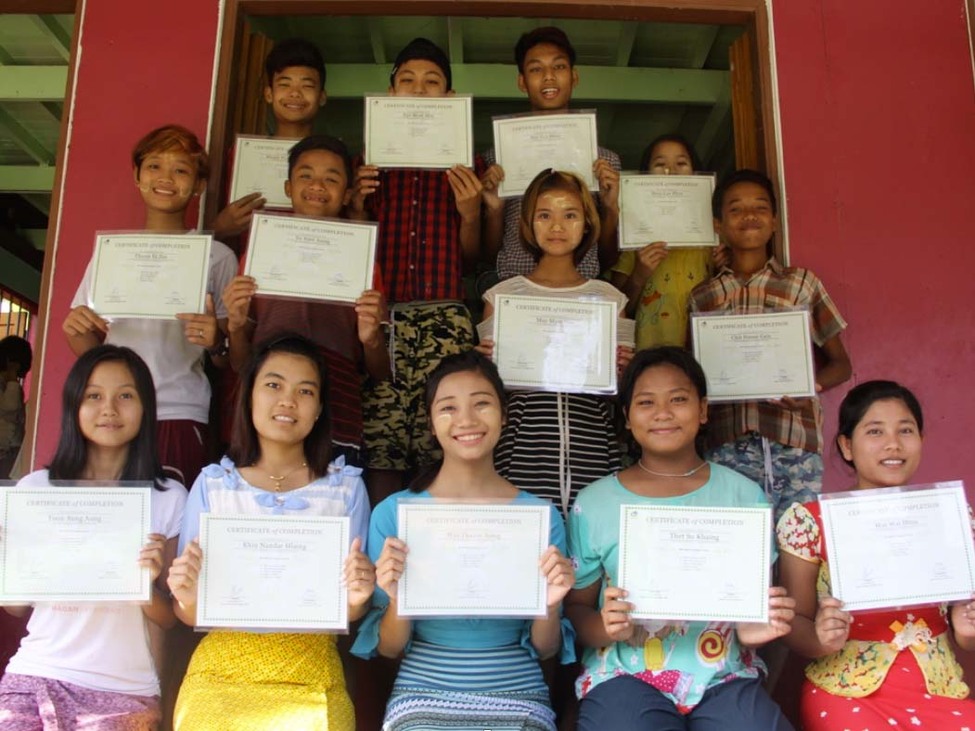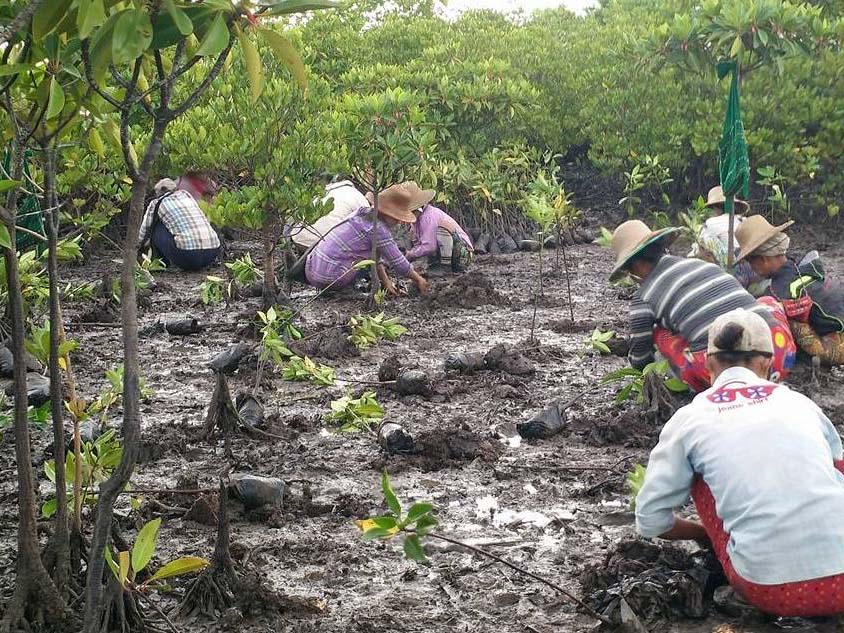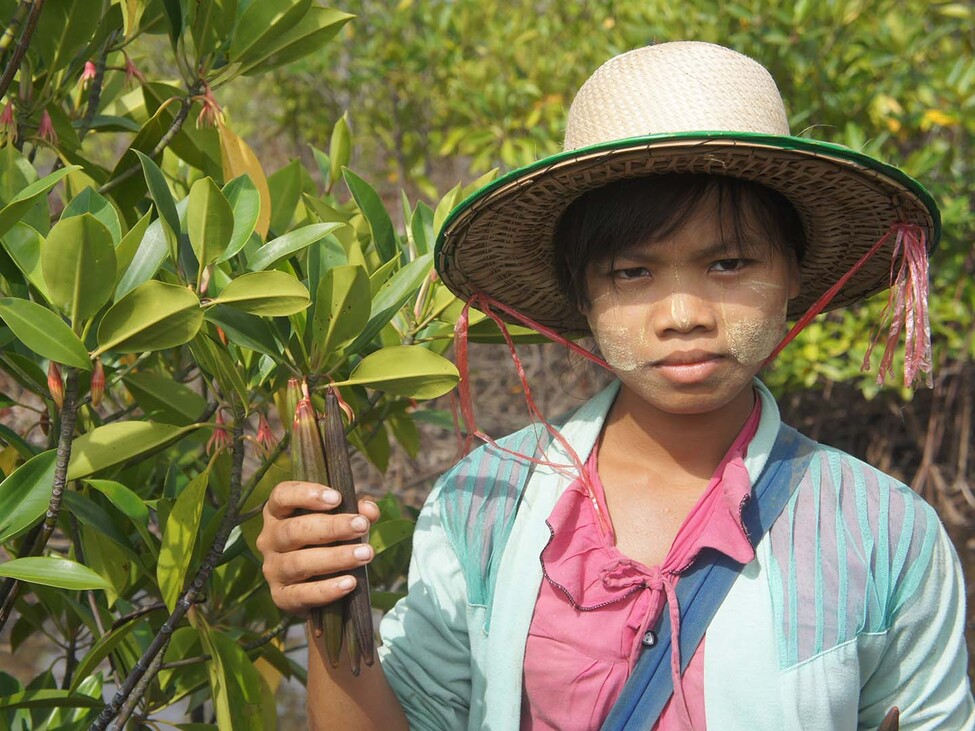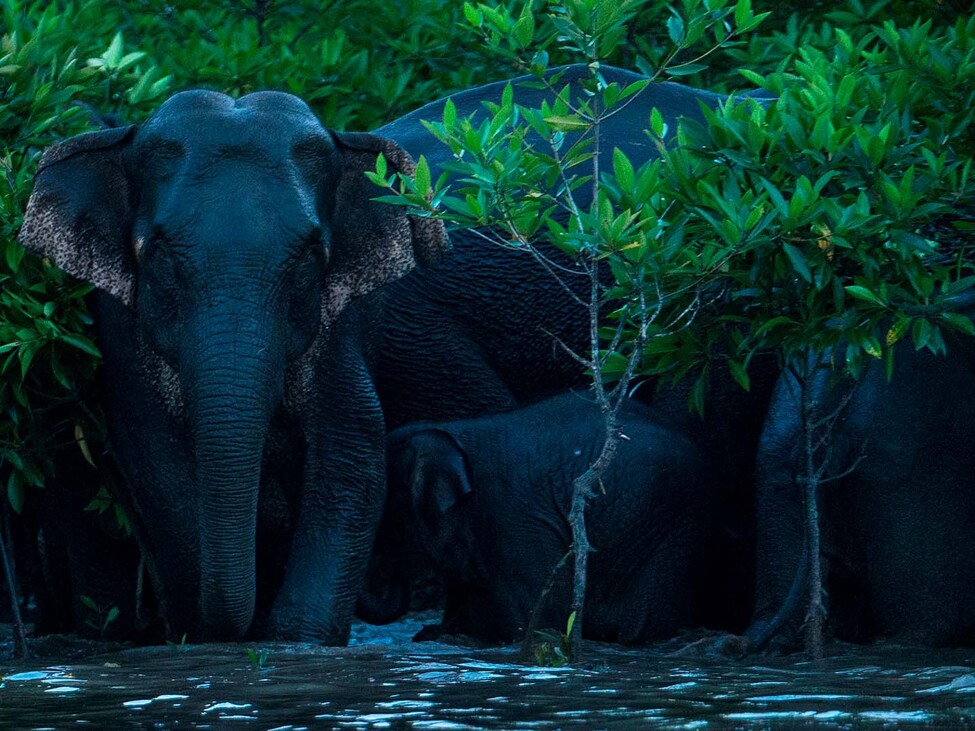Project facts
Project type: Agriculture and forestry
Project location: Myanmar
Project standard: VCS
Annual emission reduction: 54.000 t
Project start: March 2018
The project engages the local population of a coastal region in Myanmar to restore degraded mangrove ecosystems. The aim is to create healthy mangrove forests that take up carbon, protect the population from natural disasters and conserve biodiversity by representing a key habitat for endangered species. At the same time, the project aims at diversifying livelihoods of local communities and increasing their well-being.
